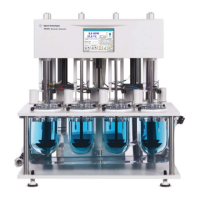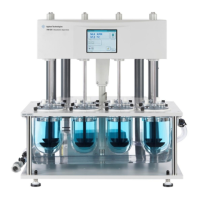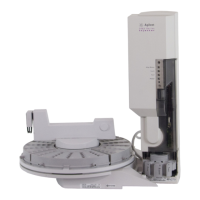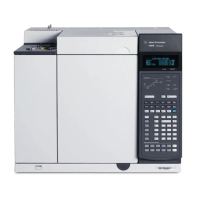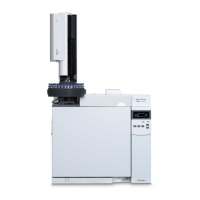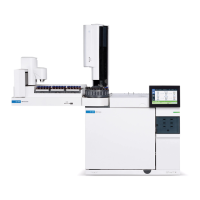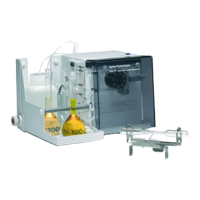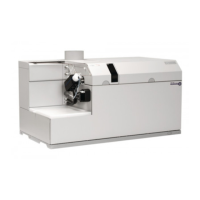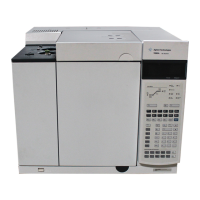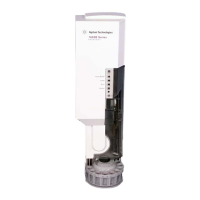6 Operating in CI Mode
Other Reagent Gases
7000/7010 Series TQ GC/MS Operating Manual 133
Other Reagent Gases
This section describes the use of isobutane or ammonia as the reagent gas. You
should be familiar with operating the CI-equipped 7000/7010 Series TQ GC/MS
with methane reagent gas before attempting to use other reagent gases.
Changing the reagent gas from methane to either isobutane or ammonia
changes the chemistry of the ionization process and yields different ions. The
principal CI reactions encountered are described in general in the Agilent
7000/7010 Triple Quadrupole GC/MS Concepts Guide. If you are not experienced
with CI, we suggest reviewing that material before you proceed.
Isobutane CI
Isobutane (C
4
H
10
) is commonly used for CI when less fragmentation is desired
in the CI spectrum. This is because the proton affinity of isobutane is higher than
that of methane; hence less energy is transferred in the ionization reaction.
Addition and proton transfer are the ionization mechanisms most often
associated with isobutane. The sample itself influences which mechanism
dominates.
Do not use nitrous oxide as a reagent gas. It radically shortens the life span of
the filament.

